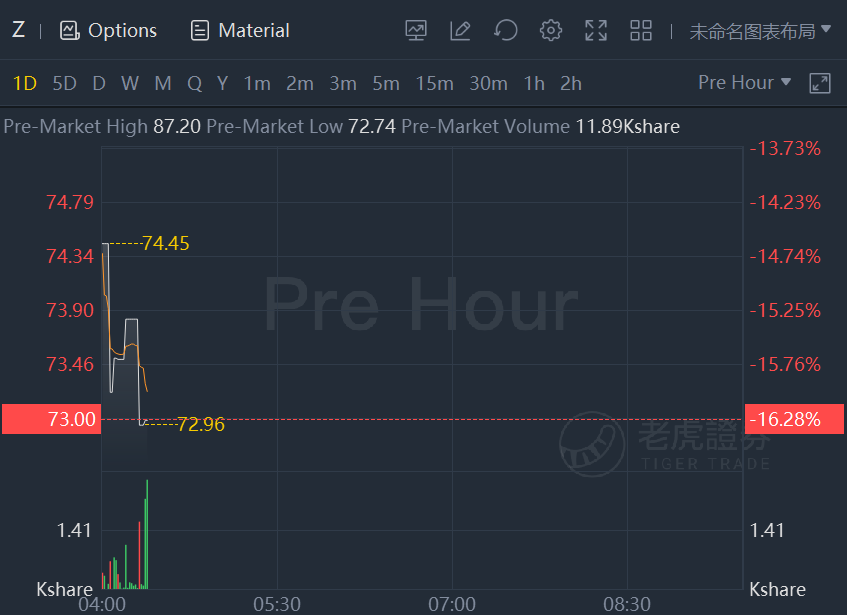Zillow stock plunged 16.3% in premarket trading after Zillow quitting its homebuying business as losses mount.
Zillow Group said it would shut down its homebuying and selling business, citing the company’s inability to accurately predict future home prices.
“We’ve determined the unpredictability in forecasting home prices far exceeds what we anticipated and continuing to scale Zillow Offers would result in too much earnings and balance-sheet volatility,” CEO Rich Barton said Tuesday.
“We have been willing to take a really big swing on this, but not a bet the company swing,” the CEO said on an investor call following the announcement in the company’s third-quarter earnings.
Barton also said labor and supply shortages backed up the company’s home-processing pipeline. “We’ve been able to convert only about 10% of the serious sellers who ask for a Zillow Offer, and we have tended to disappoint the roughly 90% who didn’t sell to us,” Barton said.
Zillow still has thousands of homes in its inventory. The company said in its shareholder letter released Tuesday that it purchased 9,680 homes in the latest quarter and sold 3,032 homes. It ended the quarter with 9,790 homes in its inventory and an additional 8,172 homes under contract. That’s a significant increase from the 3,142 homes Zillow had in its inventory at the end of the second quarter.
Zillow plans to shut down the program over several quarters, a spokesperson told Barron’s, noting that the company will process, prepare, and sell homes the way it has historically. The company expects to sell most of its homes by the end of the second quarter of 2022.
The program’s end will result in a 25% reduction in its workforce over the next several quarters, Zillow said. According to FactSet, the company currently employs around 5,500 people.
For the third quarter, the real estate firm reported revenue of $1.7 billion and an adjusted Ebitda loss of $169 million in the quarter. Analysts had expected sales of about $2 billion and Ebitda of $114 million.
Homes comprised the bulk of Zillow’s sales in the third quarter. The segment contributed $1.2 billion of the company’s total revenue in the quarter, or about 71%.
The Internet, Media, and Technology segment reported adjusted Ebitda of $207 million, while the Mortgages segment reported adjusted Ebitda of $5 million. Its Homes segment, which includes Zillow Offers, reported an Ebitda loss of $381 million. That includes a $304 million write-down of homes bought at a higher price than Zillow expects to sell them, the company said. Analyst estimates had called for a loss of $56 million for the segment.
For the fourth quarter, Zillow expects sales of $2.8 billion at the middle of its outlook and an adjusted Ebidta loss between $136 million and $186 million, according to its shareholder letter.
The company expects a loss of $240 million to $265 million on homes it expects to purchase in the fourth quarter. Zillow also said it would recognize costs associated with the wind-down of Zillow Offers in the fourth quarter that could total between $175 million to $230 million and extend into 2022.
On the call with investors, Zillow CFO Allen Parker said the company ended the quarter with $3.2 billion in cash and investments—“more than sufficient liquidity to weather the impact of home purchases in Zillow Offers in Q4.” He added that ending Zillow Offers allows the company to “invest in more scalable customer solutions that are less capital-intensive.”
The company began testing its homebuying program, Zillow Offers, in 2017. It operated the business in 25 markets, according to listings on Zillow’s website.

精彩评论